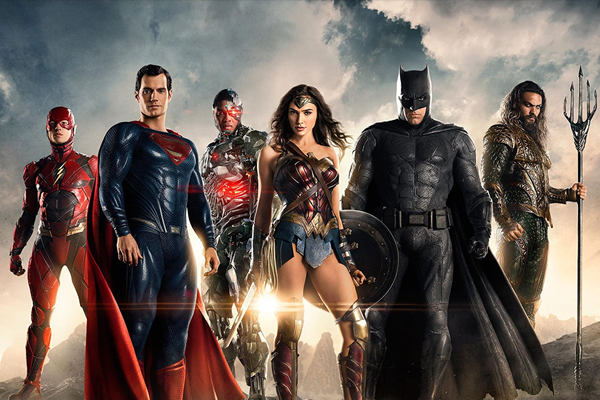For Gawker Media’s websites to live, Gawker.com, the actual namesake website, has to die. It will be shut down next week by its new owner, a victim of its own poisoned legacy.
Any obituary should start by acknowledging the good the subject rendered to the world. There’s no reason not to do that here, other than the extent to which that impulse might appall some of Gawker’s own writers were it a piece about the demise of another publication.
Gawker itself was born of the insight of founder Nick Denton, who quite rightly concluded that what journalists told one another over drinks was invariably more interesting than what actually appeared in print, online or on the air. He set out to correct that in 2003, with a publication that knit together news analysis and gossip in the same stories. It was, as former Gawker editor Max Read recently wrote, “an endlessly scrolling, eternally accessible record of prattle and wit and venom.”
Its offerings were often brutally satiric and unsparing in their conclusions.
Gawker’s reports that its reporter had viewed video of Toronto’s then-Mayor Rob Ford smoking crack rightly made his rampant substance abuse a topic fit for wider media scrutiny. The site also bird-dogged the powerful who bullied other people with less stature or fewer resources. Gawker was rarely in better form than when, say, writer John Cook showed how Fox News’ Bill O’Reilly used his influence with senior police officials and organizations on Long Island, N.Y., to start an investigation of his estranged (and now ex-) wife’s boyfriend, who was on the force. It proved to be an instance in which a celebrity’s private acts proved newsworthy.
Gawker was built on a cadre of young and often poorly paid writers made to work long hours with little or no access to the people they were writing about or the glamorous worlds they inhabited. It meant they had no fear of offending the subjects of their stories or their layers of publicists intent on steering entertainment writers for established publications to safer topics, with the threat of withholding their presence when the next wave of interviews hit to promote the next big project. At its best, Gawker felt like a corrective to the airbrushed reality fed to readers in glossy magazines or highly curated social media accounts.
From a business perspective, Denton showed a way to profitability for a midsize digital media company, one built on clear voices and identity. He experimented with verticals, adding one here, dropping another there, but catered successfully to the appetites of his young urbanite audiences with sister sites on such topics as gender, tech, cars, lifestyle and sports.
Unbound by the niceties of convention, however, Gawker blurred the lines between public and private, and cast aside such journalistic luxuries as figuring out whether something is actually appropriate to publish. It seemed fixated on the dating lives of celebrities (and the less famous), especially those in the media, and on the question of unarticulated sexual orientation. (CNN’s Anderson Cooper, who later publicly attested that he was gay, was a frequent topic of gossip and mockery.) Gawker’s targets often felt small-bore, its grievances petty.
In 2010, Deadspin, Gawker’s sports blog, posted video of a college student having sex in the bathroom of a bar. She asked A.J. Daulerio, Deadspin’s editor, to take the video down: “I am the girl in it and it was stolen from me and put up without my permission.” His initial response: “Blah, blah, blah.” He later conceded that what the video showed could be “possibly rape.”
The site’s judgment reached another low point last summer when it published the saga of a male New York media executive who, despite being married to his wife for years, was said to have arranged for a weekend in Chicago with a male escort. The story read very much the product of the escort’s inability to extort money from the executive.
Gawker’s corporate leadership had the posting pulled after widespread outcry. Writers fought back, some over the process and others on the merits. A young writer for Gawker’s sister site, Jezebel, tweeted, “Stories don’t need an upside. Not everyone has to feel good about the truth. If it’s true, you publish.”
The tweet betrayed a nihilistic impulse that had been part of the site’s DNA. Denton, the genetic parent, publicly promised a Gawker that would be 20 percent nicer.
He had reason to do so. In 2012, Gawker had published a brief excerpt of a tape of former wrestler Hulk Hogan having consensual sex with the wife of a then-friend who was a shock jock. Hogan (né Terry Bollea) appeared unaware he was being videotaped and sued. The shock was the point — yes, it was brief, and yes, we all think of Hogan/Bollea as a human cartoon rather than a human being — but as it turns out, Hogan proved just as capable as any other human being in getting legal representation.
“We told a real story that cleared a lot up about what was out there,” Gawker’s general counsel and president, Heather Dietrick, told Fortune magazine in defending the decision to post the video. “Hogan himself was out there talking in color detail about his sex life again and again.” She said that public sharing of the video excerpt was necessary to prevent Hogan from denying its contents.
The Florida jury’s verdict totaling $140 million against Gawker Media and Denton forced both to go into bankruptcy and the company to be put up for sale at a court-overseen auction.
Bollea’s case was underwritten by the Silicon Valley billionaire investor Peter Thiel, whom Gawker had outed as gay in 2007 very much against his will. Denton has said Thiel promised revenge for disclosing his sexual orientation. Thiel acknowledged he had subsidized other lawsuits against Gawker and would do so indefinitely.
The Spanish-language broadcasting giant Univision bought Gawker Media this week for $135 million. Univision had first explored buying Gawker last year, according to a person knowledgeable about those discussions, while Bollea’s suit was in the courts but well before the jury verdict in June. Univision wanted the company, including Gawker.com, to round out its suite of digital offerings for English-speaking millennials, which include The Root, The Onion and Fusion. But Univision will instead shut down Gawker.com, a site whose brand is too toxic to touch. The case remains on appeal, but Univision’s executives are trying to insulate their company from any liability that could potentially extend to the new owners.
Thiel’s crusade comes off as a vendetta, and one with ugly implications for press freedom in light of adversaries with nearly infinite resources. Yet Gawker’s demise was almost foreordained by its origin. It proved to be a mix of the irresistible with the indefensible.
Let’s block ads! (Why?)






